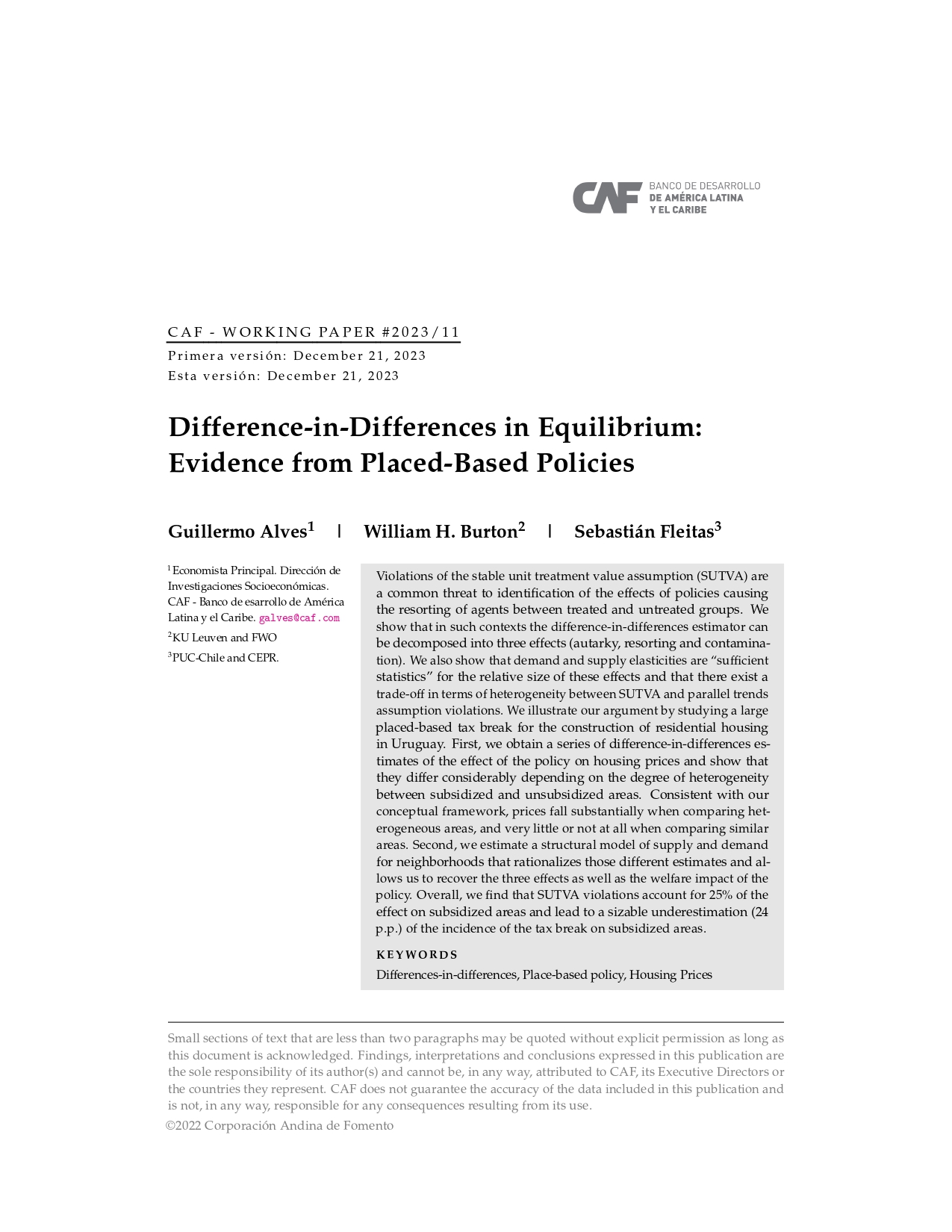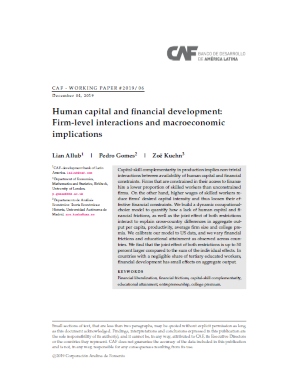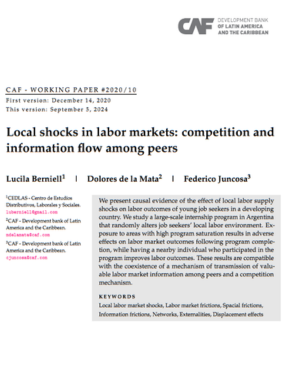Listar6.1 Documentos de trabajo en investigación socioeconómica por tema "Banca de desarrollo"
Mostrando ítems 1-5 de 5
-
Difference-in-Differences in Equilibrium: Evidence from Placed-Based Policies
(CAF- banco de desarrollo de América Latina y el Caribe; Distrito Capital, 2023-12-26)Violations of the stable unit treatment value assumption (SUTVA) are a common threat to identification of the effects of policies causing the resorting of agents between treated and untreated groups. We show that in such ... -
Gender Gaps in Labor Informality: The Motherhood Effect
(CAF; Caracas, 2020-12-15)We estimate the short- and long-run labor market impacts of parenthood in a developing country, Chile, based on an eventstudy approach around the birth of the first child. We assess mechanisms behind these effects based ... -
Human Capital and Financial Development: Firm-Level Interactions and Macroeconomic Implications
(CAF; Caracas, 2019-12-04)Capital-skill complementarity in production implies non-trivial interactions between availability of human capital and financial constraints. Firms that are constrained in their access to finance hire a lower proportion ... -
Local shocks in labor markets: competition and information flow among peers
(CAF; Caracas, 2020-12-16)We present causal evidence of the effect of local labor supply shocks on labor outcomes of young job seekers in a developing country. We study a large-scale internship program in Argentina that randomly alters job seekers’ ... -
Savings Groups Reduce Vulberability but have Mixed Effect on Financial Inclusion
(CAF; Caracas, 2021-01-08)This paper evaluates the impact of the introduction of savings groups on poverty, vulnerability, and financial inclusion outcomes in rural Peru. Using a cluster randomized control trial and relying on both survey and ...






